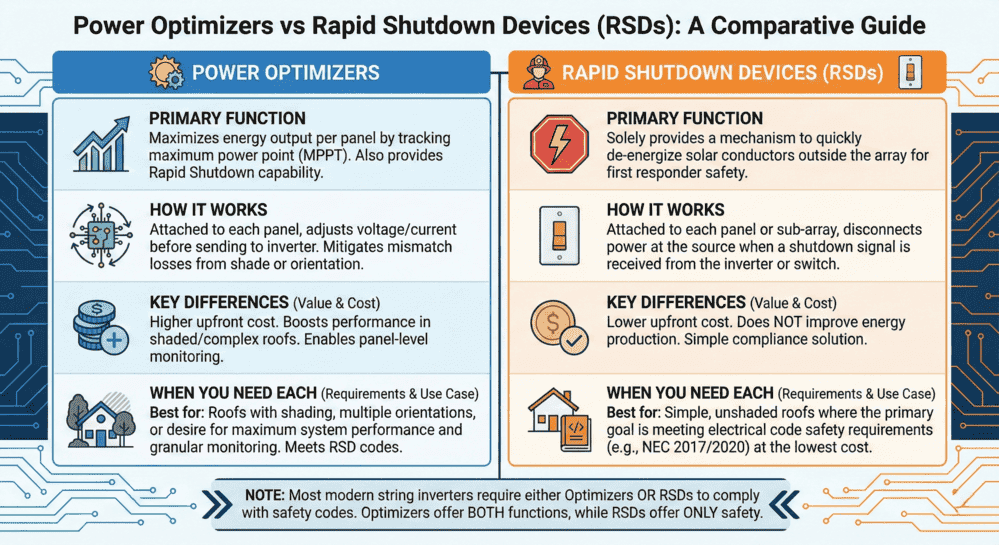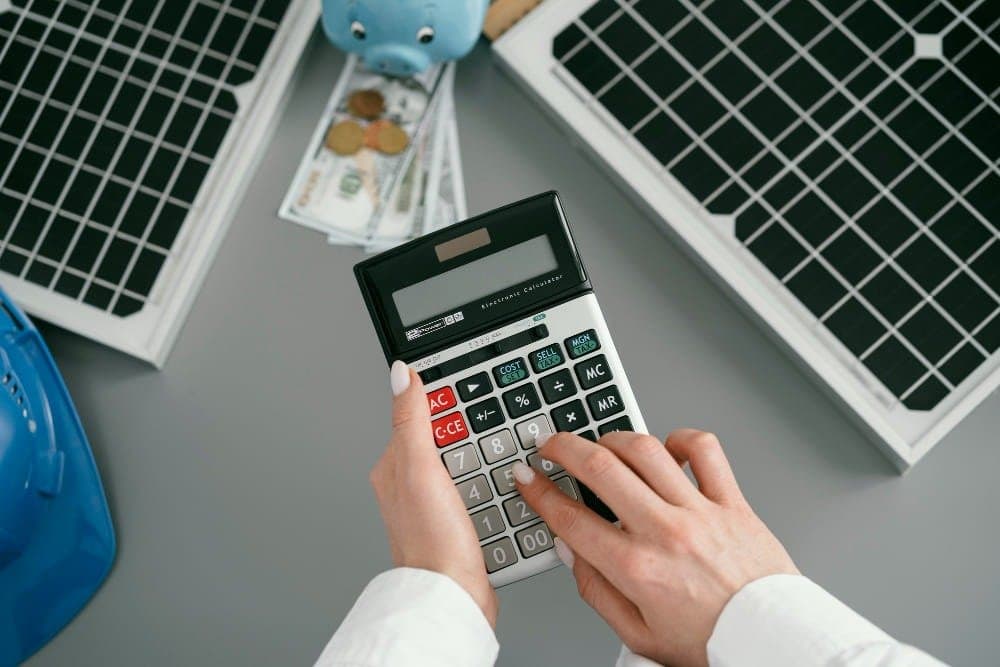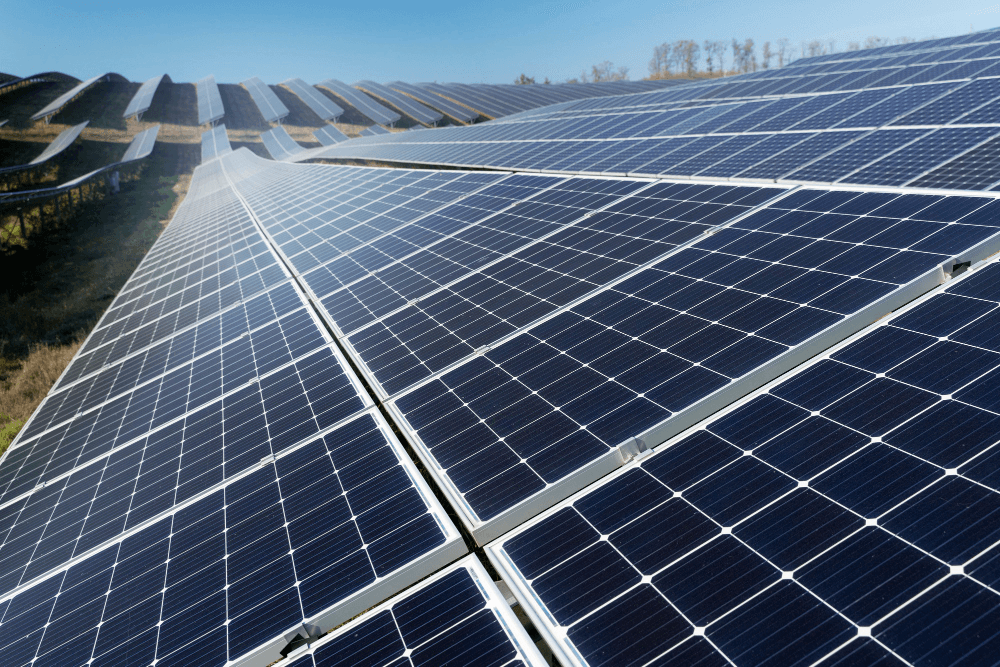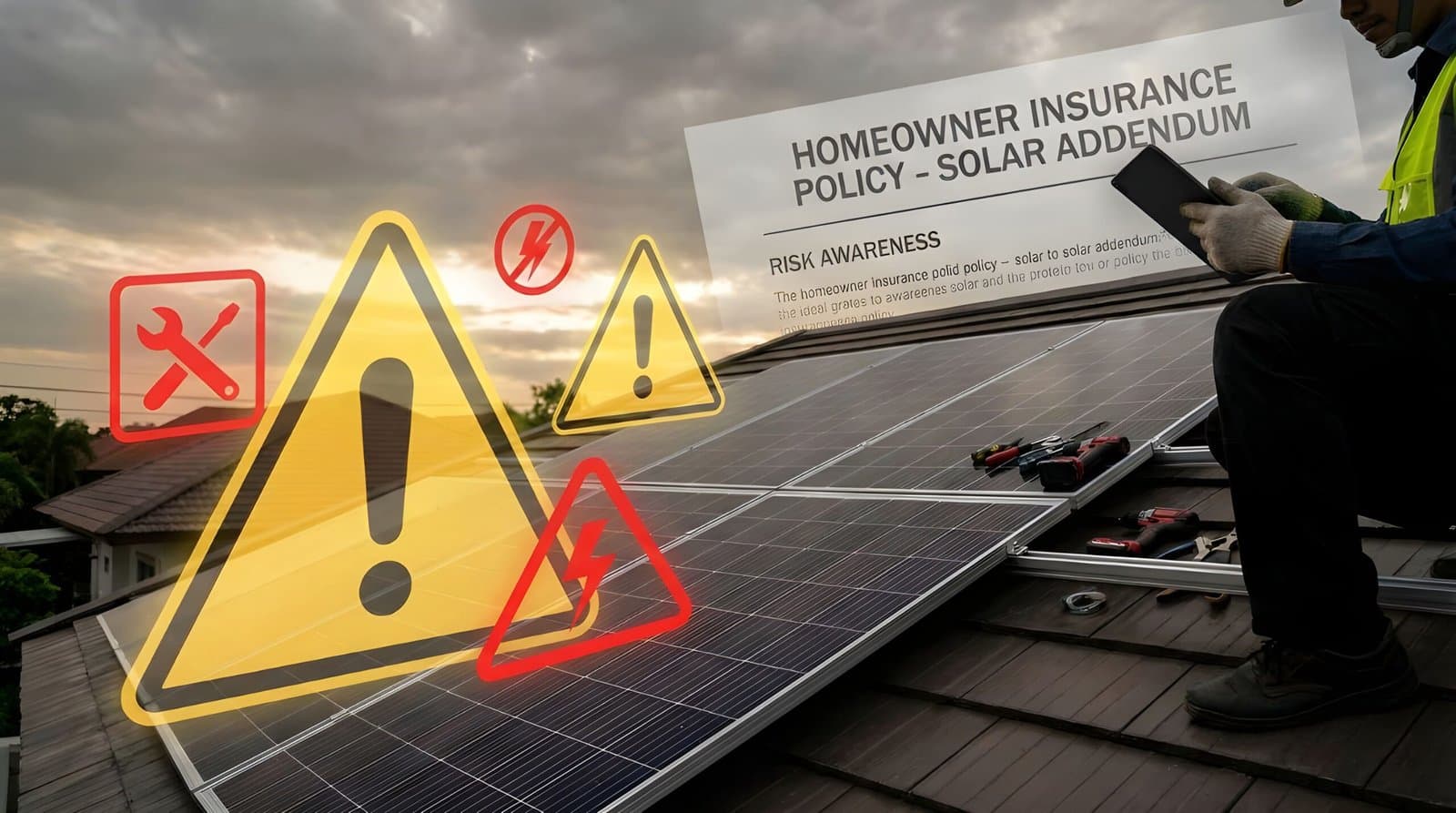DIY solar installation poses significant insurance and liability risks that homeowners often underestimate. While DIY solar kits may appear cost-effective, self-installation can void manufacturer warranties, disqualify homeowners from federal tax credits, and result in denied insurance claims if damage occurs. Most homeowner’s insurance policies do not cover damages from unpermitted or uncertified installations, leaving property owners financially responsible for fires, electrical accidents, or structural damage.
Professional solar installation is required for several critical reasons. First, solar panel warranties spanning 20 to 30 years typically mandate certified installation. Second, DIY installations often fail building inspections, preventing grid connection and net metering benefits. Third, federal Investment Tax Credits (ITC) and state rebates frequently require proof of professional installation. Fourth, improper wiring and grounding create serious fire and electrocution hazards.
The hidden costs of DIY solar installation extend beyond initial savings. Homeowners risk losing thousands in tax incentives, facing permit violations and fines, dealing with voided equipment warranties, and paying out-of-pocket for system failures or property damage. Professional installers provide licensed expertise, code compliance, proper permitting, insured workmanship, and warranty protection that DIY approaches cannot match. This guide details the insurance, liability, and financial risks associated with DIY solar projects and explains why professional installation protects both investment and safety.

Safety Hazards and Electrical Risks
Solar Panels Are Not Plug-and-Play Devices
Despite their appearance as simple glass modules, solar panels function as components within sophisticated electrical systems. Managing high-voltage DC electricity without appropriate safety protocols can cause fatal injuries. Many DIY enthusiasts remain unaware that inactive panels generate sufficient current to inflict harm when exposed to sunlight. Factor in ladders, angled rooftops, and variable weather conditions, and the accident potential becomes clear.
Risk of Fire, Shock, and Structural Damage
Faulty wiring, inadequate grounding, or circuit overloading readily trigger electrical fires. Improperly fastened panels or mounting hardware can cause roof damage or water leaks, creating expensive repairs and dangerous conditions when neglected. These scenarios are not merely theoretical. Documented incidents exist where amateur installations resulted in substantial property destruction through avoidable mistakes.
Why Professional Residential Solar Panel Installation Matters
Expertise That Goes Beyond Installation
Working with qualified residential solar design professionals means collaborating with specialists who understand system design tailored to specific home architecture, energy consumption patterns, and property orientation. These experts analyze sun exposure, evaluate shading factors, and optimize panel positioning to ensure peak efficiency.
Proper Licensing and Code Compliance
Professional installers maintain proper licensing and insurance coverage, demonstrating comprehensive knowledge of local building regulations. This guarantees installations meet safety standards and avoid future fines or legal complications. Systems installed by professionals pass inspections, something DIY projects frequently fail to achieve, particularly in jurisdictions with rigorous permitting requirements.
Equipment, Training, and Guarantees
Solar installation specialists possess appropriate tools and training to complete projects correctly on the first attempt. Their work typically includes warranties covering both equipment specifications and labor, delivering assurance that DIY installations cannot provide.
Voided Warranties and Insurance Issues
Manufacturer Warranties Come with Conditions
Solar panels generally include manufacturer warranties extending 20 to 30 years. These warranties frequently require installation by certified professionals. DIY installation, regardless of apparent quality, may completely void this protection. Reliability studies show that improper installation is a leading cause of premature system failure.
Homeowner’s Insurance May Not Cover DIY Mistakes
Insurance providers may decline coverage for damages resulting from unpermitted or uncertified solar installations. When systems cause fires, electrocution, or structural harm, property owners could face complete financial responsibility. This factor alone justifies working with bonded and insured solar services providers.

Solar Permit Solutions
DIY Solar? We Handle the Permits.
You install the panels — we design the permit-ready plan set your building department requires. Fast, affordable, all 50 states.
Hidden Costs and Long-Term Expenses
Upfront Savings, Hidden Expenses
DIY solar panel kits may appear economical but often contain inferior components, standard inverters, and limited instructions. Installation errors lead to diminished system efficiency, substandard performance, or premature failure, ultimately increasing long-term costs. Research demonstrates that connector failures alone can significantly impact system performance.
System Inefficiency Adds Up
Without proper energy assessments and system design, installations risk producing insufficient or excessive electricity. This limitation reduces return on investment or creates unnecessary strain on inverter and battery systems. Professional commercial solar design companies utilize software and site surveys to accurately size systems and project performance.
Missing Out on Financial Incentives
Numerous state and federal solar incentives mandate completion by certified professionals. DIY installation attempts may disqualify property owners from thousands of dollars in rebates, tax credits, and solar renewable energy certificates. Understanding permit requirements is essential for accessing these financial benefits.
Compliance and Permitting Challenges
Permits Are Not Optional
Every municipality has specific permitting requirements for solar installations, including structural evaluations, electrical schematics, and fire safety code compliance. Failing to obtain proper permits results in expensive delays or penalties.
Inspectors Can Deny System Connection
DIY systems that fail to meet utility or municipal inspection standards cannot connect to the grid. This means no net metering and no utility bill reductions, which eliminates the primary purpose of installing solar equipment. System degradation research indicates that improper installation accelerates component failure rates.
Professionals Know the Process
Professional installers handle all regulatory requirements efficiently. They understand local regulations, know proper permit application procedures, and maintain relationships with inspectors. This ensures systems receive approval, connection, and functionality without complications or unexpected issues. Streamlined permit processing significantly reduces project timelines.
Conclusion
Choosing solar energy ranks among the best decisions for homes, finances, and environmental responsibility. However, actual installation requires professional expertise rather than shortcuts or unnecessary risks. The technical complexity of designing, mounting, wiring, and connecting solar systems demands specialists who perform these tasks daily. Connector lifecycle studies emphasize the importance of proper installation techniques.
Experienced professionals ensure systems are installed safely, efficiently, and in complete compliance with all regulations. Professional teams also explain system operation, long-term expectations, and methods to maximize energy savings. Avoiding DIY mistakes prevents solar aspirations from becoming expensive disasters. Whether considering off-grid systems or grid-tied installations, performance analysis demonstrates that professional installation delivers superior long-term results.
Professional services provide premium equipment, expert installation, and reliable support from beginning to end. Properties deserve optimal solutions. Contact Solar Permit Solutions today to schedule consultations and take the first step toward smarter, cleaner energy solutions. Visit the blog for additional resources or explore Solar Permit Solutions for comprehensive solar services.
FAQs
Will my homeowner’s insurance cover damage from a DIY solar installation?
Most homeowner’s insurance policies may not cover damages resulting from unpermitted or uncertified solar installations. Insurance companies typically require proof that work was completed by licensed professionals who followed local building codes. If a DIY solar system causes property damage, fires, or injuries, property owners may be financially responsible for all repair costs and liability claims. Before attempting any solar installation, homeowners should contact their insurance provider to understand coverage limitations and requirements.
DIY Solar? We Handle the Permits.
You install the panels — we design the permit-ready plan set your building department requires. Fast, affordable, all 50 states.
Frequently Asked Questions
Most homeowner's insurance policies may not cover damages resulting from unpermitted or uncertified solar installations. Insurance companies typically require proof that work was completed by licensed professionals who followed local building codes. If a DIY solar system causes property damage, fires, or injuries, property owners may be financially responsible for all repair costs and liability claims. Before attempting any solar installation, homeowners should contact their insurance provider to understand coverage limitations and requirements.
Yes, DIY installation often voids manufacturer warranties entirely. Most solar panel manufacturers offer warranties lasting 20 to 30 years, but these warranties explicitly require installation by certified professionals. Even if the DIY installation appears flawless, the lack of professional certification can invalidate warranty coverage. This means any defects, performance issues, or equipment failures would require out-of-pocket replacement costs rather than warranty protection.
Solar installations require multiple permits depending on local jurisdiction requirements. These typically include electrical permits, building permits, and sometimes fire safety permits. Each municipality has specific requirements that may involve structural assessments, electrical diagrams, interconnection agreements with utility companies, and compliance documentation. Failing to obtain proper permits can result in fines, forced system removal, denial of grid connection, and disqualification from financial incentives.
Many federal and state solar incentives require installation by certified professionals to qualify for benefits. The federal Investment Tax Credit (ITC) and various state rebate programs often mandate that work be completed by licensed contractors who meet specific qualifications. DIY installations may disqualify homeowners from thousands of dollars in tax credits, rebates, and solar renewable energy certificates (SRECs). Verification of professional installation is typically required during the application process for these financial incentives.
DIY solar installation presents multiple serious safety hazards. Solar panels generate high-voltage DC electricity that can cause fatal electric shocks, even when panels appear inactive. Working on rooftops introduces fall risks, especially on sloped surfaces or during adverse weather conditions. Incorrect wiring, improper grounding, or overloaded circuits can trigger electrical fires that damage property and endanger lives. Additionally, improperly secured mounting systems can cause structural damage, roof leaks, or panel detachment during storms. Professional installers have safety training, proper equipment, and insurance coverage to mitigate these risks.
Utility companies require inspections and approval before allowing any solar system to connect to the grid. DIY installations that fail to meet electrical codes, safety standards, or utility interconnection requirements will be denied grid connection. Without grid connection, homeowners cannot benefit from net metering programs that credit excess energy production. The system must pass inspections from both local building departments and utility companies, which typically requires professional installation documentation and compliance certificates.
SPS Editorial Team
Solar Permit Solutions
Solar Permit Solutions provides professional solar permit design services for residential, commercial, and off-grid installations across all 50 states. Our team ensures permit-ready plan sets delivered fast.
Related Articles

Power Optimizers vs Rapid Shutdown Devices: Differences, Requirements & When You Need Each
When planning a solar installation, understanding the difference between rapid s...

Your Complete DIY Solar Panel Installation Guide
Homeowners turn to solar energy for various motivations. Clean, renewable power ...

What Is A Commercial Solar PV System?
A commercial solar PV system is a renewable energy setup designed to help busine...
